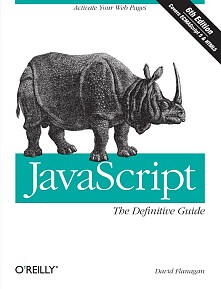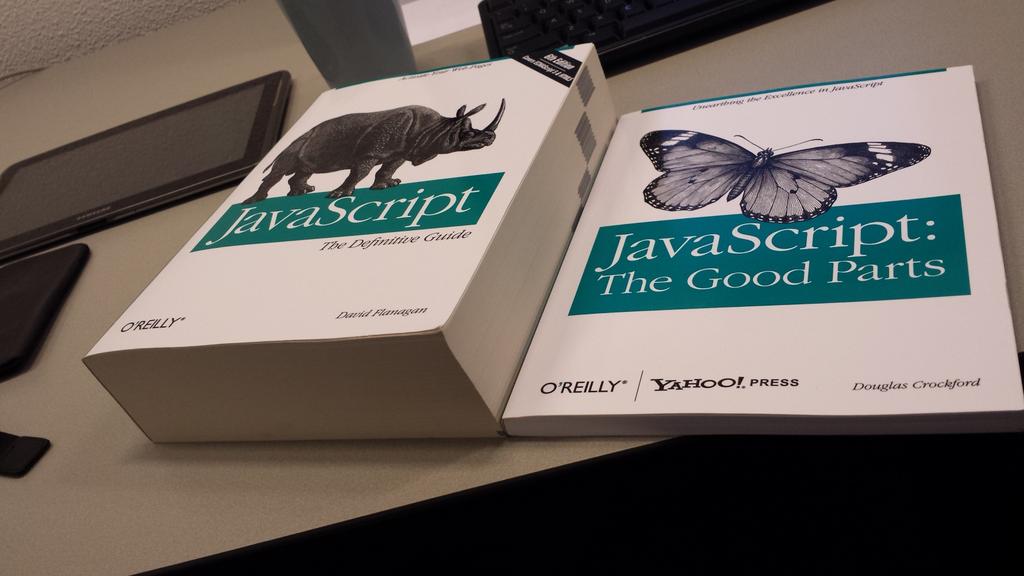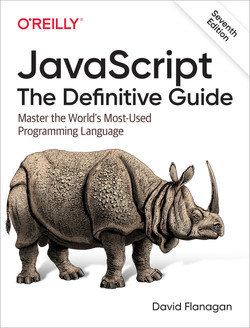JavaScript The Definitive Guide by David Flanagan. 2011, 2020.
JavaScript The Definitive Guide. 6th Edition. (2011) (the Rhino Book)

Nearly all of the books about JavaScript are quite awful. They contain errors, poor examples, and promote bad practices. Important features of the language are often explained poorly, or left out entirely. I have reviewed dozens of JavaScript books, and I can only recommend one: JavaScript: The Definitive Guide (5th Edition) by David Flanagan.
— Douglas Crockford JavaScript the Good Parts in his blog at http://javascript.crockford.com/javascript.html

This is the most formal and correct JavaScript tutorial, and a comprehensive JavaScript reference.
Am very impressed with this book.
Outdated by today (as of 2013-06-10). It does not cover ES2015, which is necessary.
However, of all old books, this is best.
The book is also written in concrete style. (it just talk about the language. It doesn't talk about “patterns”, or “idiom”, or methodology. Rather, it gives you facts about the language, and with practical tips, so you really understand the core.)
The book can be divided into 3 parts.
- JavaScript the language, in painstaking detail. You can think of this as JavaScript spec written in a easy-to-undertand way for programer.
- The ins and outs of DOM. The part that web programers actually need to deal with daily.
- A reference section, detailed documentation of JavaScript objects/methods, and DOM object/methods.
Normally, if you've been programing for a few years, you can quickly start to program in a new lang. You just learn the basics: data types, loops, list/array, function/objects, module, then you can practically code anything you want, albeit in a non-optimal way. But, you'll have a lot questions, especially with complex languages. Questions like scope, evaluation model, and the language's overall “model”. What happens if you do xyz. Understanding these makes you a true expert in that lang. To understand a lang well, is to be able to have a sense of a mathematical model of the language.
(and almost all modern langs are quite complex, including Java, Python, Ruby. Now, JavaScript is easy to use, but it turns out it's quite complex too actually, the hairy details of its prototype inheritance. Very few languages have simple models (Mathematica, Lisp, do)) (a language with a simple model, would be one that its syntax and semantics can be specified in just a handful of rules.)
David Flanagan drills down on the real tech detail of JavaScript language. And the book is really good. (i've read the book cover to cover few times now.)
JavaScript Definitive Guide 2020
New edition:

- JavaScript: The Definitive Guide: Master the World's Most-Used Programming Language 7th Edition
- By David Flanagan.
- Buy at amazon
The Cost of Complex Language
- Most popular languages are exceedingly complex.
- The problem is that, you spend years to master them, but, new language comes out and replaces it, and the time you spend learning that language doesn't contribute your understanding to computer science or math in any way.
- What you learned is sometimes called “artificial complexity”, “man-made complexity”, unlike certain complexity in math or comp sci, that are inherent, unavoidable.
- Perl, C, C++, and unix tech (Shell, Apache) are good examples of man-made complexity.
- Lisp, in general, are the polar opposite.
- Python Scope Complexity, Shallow Copy, Deep Copy, Circular List, and the Garbage Underneath Computer Languages
- Perl: Difference Between List and Array
- Programing: Are int, float, long, double, Side-Effects of Computer Engineering?
- Python: dictionary.clear vs Set Dictionary to Empty
- Hardware Modeled (Von Neumann) Computer Languages and Functional-Level Languages
- Math Notation, Computer Language Syntax, and the “Form” in Formalism (2003)
JavaScript books and people
- JavaScript Books Review 2023
- JavaScript The Definitive Guide by David Flanagan. 2011, 2020.
- JavaScript the Good Parts, Douglas Crockford. 2008
- JavaScript the Better Parts, by Douglas Crockford. 2018
- Node.js Creator Ryan Dahl on Software Complexity. 2011
- History of Node.js by Ryan Dahl 2011 📺
- Professional JavaScript for Web Developers, 2012, by Nicholas C Zakas